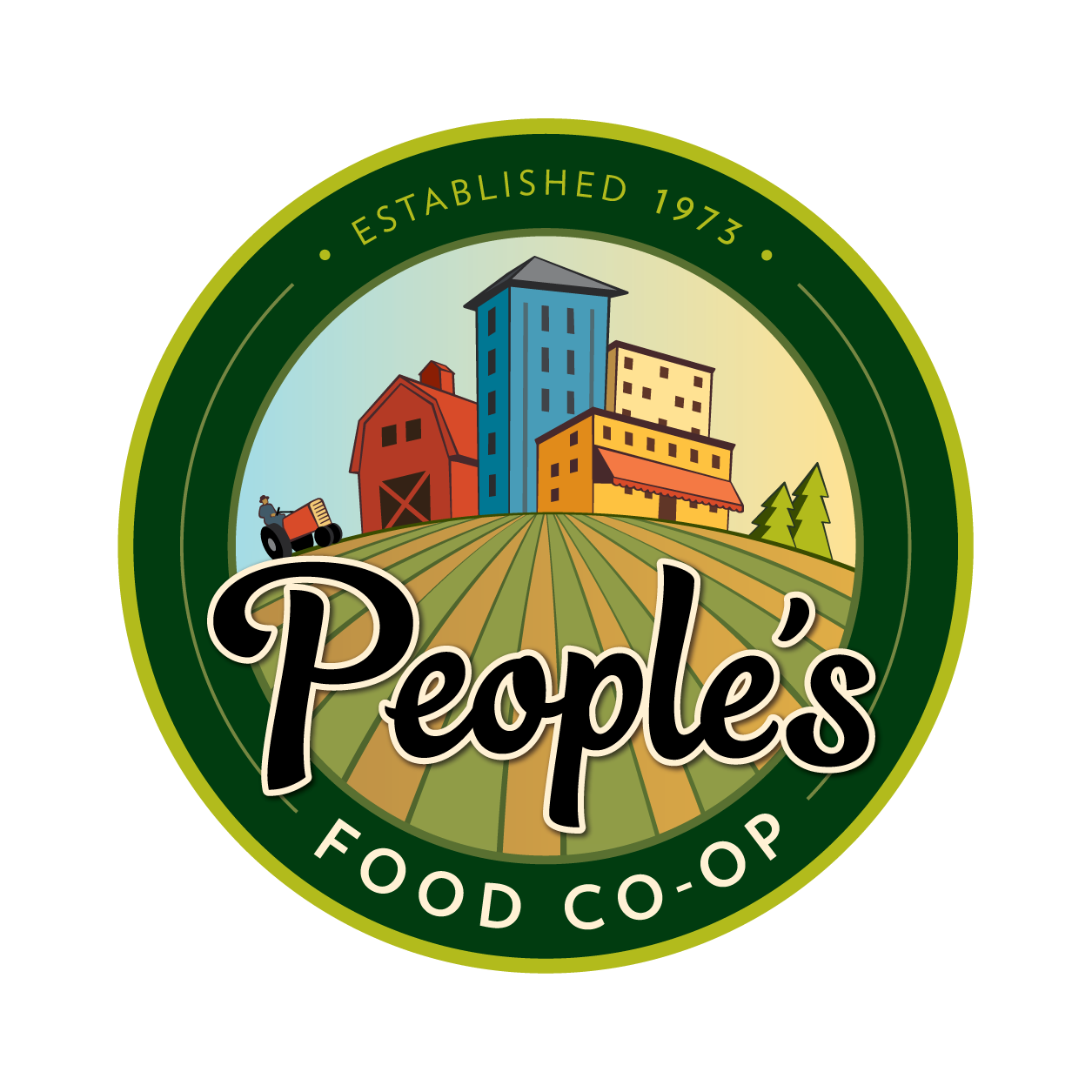WW Homestead Dairy
Angie and Tom Weighner of WW Homestead.
We recently visited with Tom Weighner, one of the partners of PFC’s local dairy supplier, WW Homestead in Waukon, Iowa. The Weighner family works with another Iowa farm family, the Wallesers, to bring fresh dairy products to People’s Food Co-op. The two families’ farms have about 300 cows that produce all the milk for the dairy. It’s very much a family operation with siblings, sons, and daughters all working either on the farms or at the dairy plant.
Get smart or get out
Since the 1970s, official U.S. farm policy has been “get big or get out.” Small farms have been marginalized in the marketplace as big conglomerate firms control farm production from seed to table. To be successful in this environment, smaller operations have had to get creative in bringing their product to market while remaining profitable. People’s Food Co-op works with several of these sorts of maverick operations – farms that don’t quite fit into the modern American industrial farm landscape. Farms that didn’t get big, but remain viable in the marketplace.
Small or medium-sized farms may not get picked up by the large dairy creameries in the region, which are continuously looking to mechanize and scale up production. A small operation, such as the Weighners, may not produce enough milk for the corporate dairy truck to come by.
In the financial downturn in 2009, Tom reports that their farm lost $100,000 in equity. “We decided we needed to try something different to survive. We decided to go value-added rather than go bigger.” In 2011 they bought an empty factory building in Waukon and converted it for milk processing. They began producing cheese curds, cheese, butter, and other dairy products as the business grew.
“It’s been going well,” Tom says. “We have small margins, but we have more than 25 employees now. A lot of high school kids – it’s good for the community. This factory building had been empty for six years before we bought it. And we put Waukon on the map as the cheese curd capital of Iowa.”
WW Homestead does their own distribution around the Upper Midwest region. Although Tom is happy to report that they recently had a big shipment of breaded cheese curds go out to Lake Tahoe, they are not looking to expand distribution outside of the Midwest. “We ship a lot [of dairy] to Wisconsin, and you know you have a good product if you’re shipping cheese to Wisconsin.”
“Covid was a huge challenge,” Tom says. “Our sales still grew. We did a little more online business and more shipping. People have continued to order online.” WW Homestead can ship an order next-day delivery to Illinois, Wisconsin, Minnesota, Iowa, and parts of Nebraska and Missouri.
Non-homogenized
Both PFC stores take Homestead’s milk and Rochester also sells their cottage cheese. “Our milk is not homogenized,” Tom notes. “Even our skim tastes like milk. It’s not over-processed.” When you bring your milk home, it will have a layer of cream on top. You can homogenize it yourself by giving it a good shake or skim the cream off for your coffee like your grandparents used to do.
WW Homestead is not an organic dairy. However, they do not use antibiotics, other than for sick animals, nor do they use growth hormones with their herds. The milk is from Holsteins with some Jerseys in the mix. “We don’t push for milk pounds. The herd runs at 4.5 percent butterfat,” Tom says. Whole milk is their biggest seller in the milk line. “People seem to have figured out that fat content is not necessarily a bad thing.” Tom argues that the economics of getting bigger yields from their cows didn’t really make sense. “It’s harder on the animal, and to get more milk, she needs to eat more feed,” and the farmer has no control over feed costs.
WW Homestead is excited to be supplying local students with milk. A couple of area elementary schools and three colleges are using Homestead milk. The creamery hopes to add more schools soon.
Although Homestead has managed to solve the farm-to-market equation, they aren’t exactly ready to quit their day jobs. All the family members employed by the business have off-farm careers. In addition to running a dairy farm, Tom works in dairy processing. He’s also in charge of sales and marketing. One daughter is a veterinarian with a degree in microbiology and manages the dairy’s food safety – in addition to holding a full-time position with the State. Another daughter and her husband manage the Weighners’ dairy herd and work at the creamery. Tom was in La Crosse the same morning I’d left to visit Homestead. He’d had to drive up to the city to fix one of their delivery trucks. In a small business you do it all yourself.
People’s Food Co-op, in partnership with small family farms such as this one, is helping to re-build our rural economies. The co-op offers access to a market that these small producers would otherwise struggle to reach.


